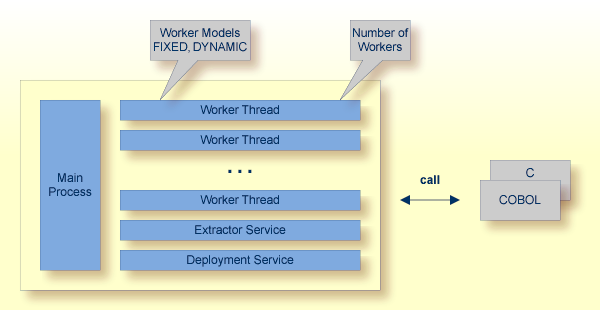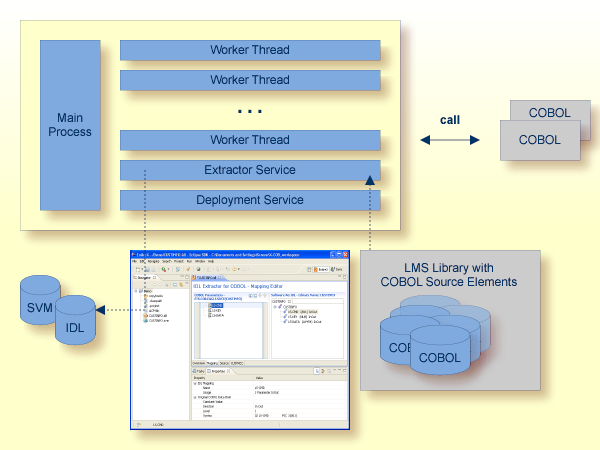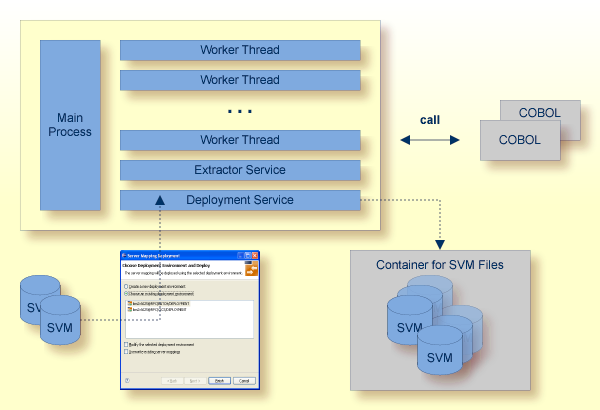The EntireX RPC Server for BS2000 allows standard RPC clients to communicate with RPC servers on the operating system BS2000. It supports the programming languages COBOL and C. This document covers the following topics:

RPC requests are worked off inside the RPC server in worker threads, which are controlled by a main thread. Every RPC request occupies during its processing a worker thread. If you are using RPC conversations, each RPC conversation requires its own thread during the lifetime of the conversation. The RPC server provides two worker models:
FIXED
The fixed model creates a fixed number of worker threads. The number of worker threads does not increase or decrease during the lifetime
of an RPC server instance.
DYNAMIC
The dynamic model creates worker threads depending on the incoming load of RPC requests.
For configuration and technical details, see parameter workermodel under Administering the RPC Server for BS2000.
RPC Server for BS2000 provides the following services for ease-of-use:
The Extractor Service is a prerequisite for remote extractions with the IDL Extractor for COBOL and IDL Extractor for PL/I. See Extractor Service for more information.

The Deployment Service allows you to synchronize server-side mapping files (Designer files with extension .svm) interactively using the Server Mapping Deployment Wizard. Synchronizing or undeploying server mapping files from the RPC server is part of Migrating Server Mapping Files. On the RPC server side, the server-side mapping files are stored in a server-side mapping container (ISAM file). See Server-side Mapping Files in the RPC Server and Deployment Service for configuration information.

Server mapping files contain COBOL-specific mapping information that
is not included in the IDL file, but is needed to successfully call the COBOL server program.
There are many situations where the RPC Server for BS2000 requires a server mapping file
to correctly support special COBOL syntax such as REDEFINES,
SIGN LEADING and OCCURS DEPENDING ON clauses, LEVEL-88 fields, etc.

The RPC server marshals the data in a two-step process: the RPC request coming from the RPC client (Step 1) is completed with COBOL-specific mapping information taken from the server mapping file (Step 2). In this way the COBOL server can be called as expected.
The server mapping files (Designer files with extension .cvm) may be retrieved as a result of the IDL Extractor for COBOL extraction process and the COBOL Wrapper if a COBOL server is generated. See Server Mapping Files for COBOL and When is a Server Mapping File Required?